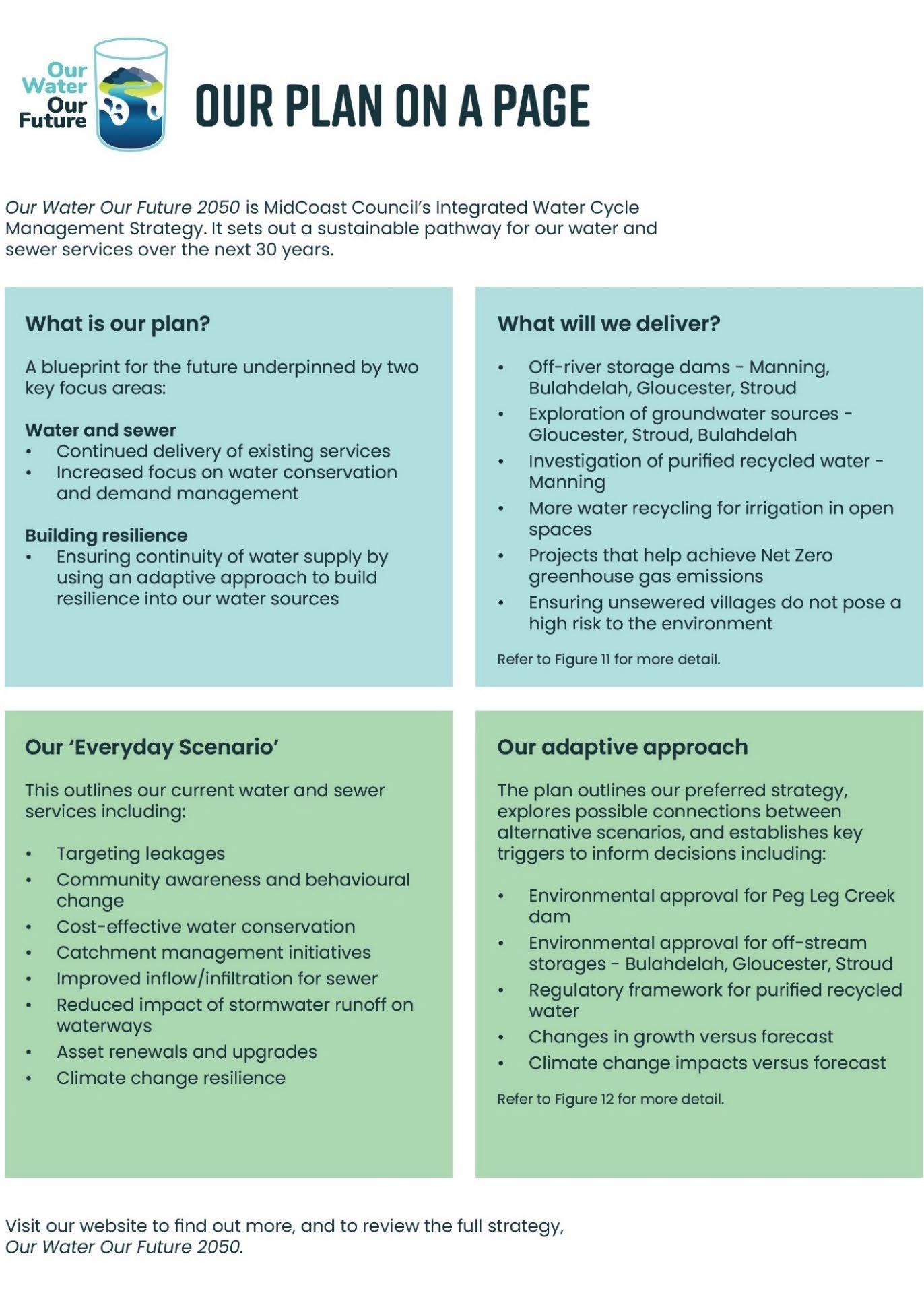
2 minute read
Executive Summary
Our Water Our Future is MidCoast’s Integrated Water Cycle Management Strategy (IWCM). It sets out a sustainable pathway for our water and sewer services over the next 30 years.
Why do we need an IWCM strategy?
Now more than ever, sound water management is needed to support better outcomes for our community and the environment. In recent times, the role of water authorities has expanded to include more than just the traditional provision and management of water and sewer services. Today, local water utilities have the potential to deliver a range of benefits by combining water cycle management solutions with liveability outcomes.
MidCoast is challenged by a growing population and the impacts of climate change, increasing our vulnerability to the impacts of drought. We plan to meet our future water needs by considering a broad range of options, ensuring solutions are sustainable and costeffective. In doing this, we will be better prepared for what the future holds.
In the development of this strategy, we focused on the biggest water-related challenge we face over the next 30 years, which is water security. We also considered how we should approach the issues of managing our effluent sustainably, how we deal with the impacts of climate change, and whether we should provide water and sewer connections for our unsewered villages. The draft strategy was developed following an analysis of all of these issues considering their economic, environmental, governance, and social benefits and costs, in collaboration with the MidCoast community, our regulators and specialists.
Our Water Our Future will guide how we respond to these challenges over the next 30 years.
What is our plan?
Our blueprint for the future is underpinned by two plans that we will deliver in parallel. The first involves the continued delivery of our existing water and sewer services, with an increased focus on water conservation and demand management. The second is the building of resilience into our water sources. To achieve this resilience, we are taking an adaptive planning approach that builds in flexibility and allows us to accommodate changes if needed. For example, off-stream storage is a key component of our plan for water security however, if the need arises, we can adapt our approach to include desalination, purified recycled water or regional water sharing solutions.
What will we deliver?
Our plan for the next 30 years involves:
• Constructing off-river storage dams for the Manning, Bulahdelah, Gloucester, and Stroud water supply schemes
• Additional water recycling to provide cost-effective irrigation for public open spaces
• Projects that help us achieve our Net Zero greenhouse gas emissions targets by 2040
• Delivering sewer services to high-risk unsewered villages where funding allows
• Continuing to target leakages in our network and with our customers
• Continuing our water education and behavioural change programs
• Progressing cost-effective water conservation measures
• Integrating catchment management initiatives into our water management
• Inflow and infiltration reduction program for the sewer network
• Minimising the impacts of development on stormwater runoff, to protect the aesthetic, recreational and ecological value of our waterways








